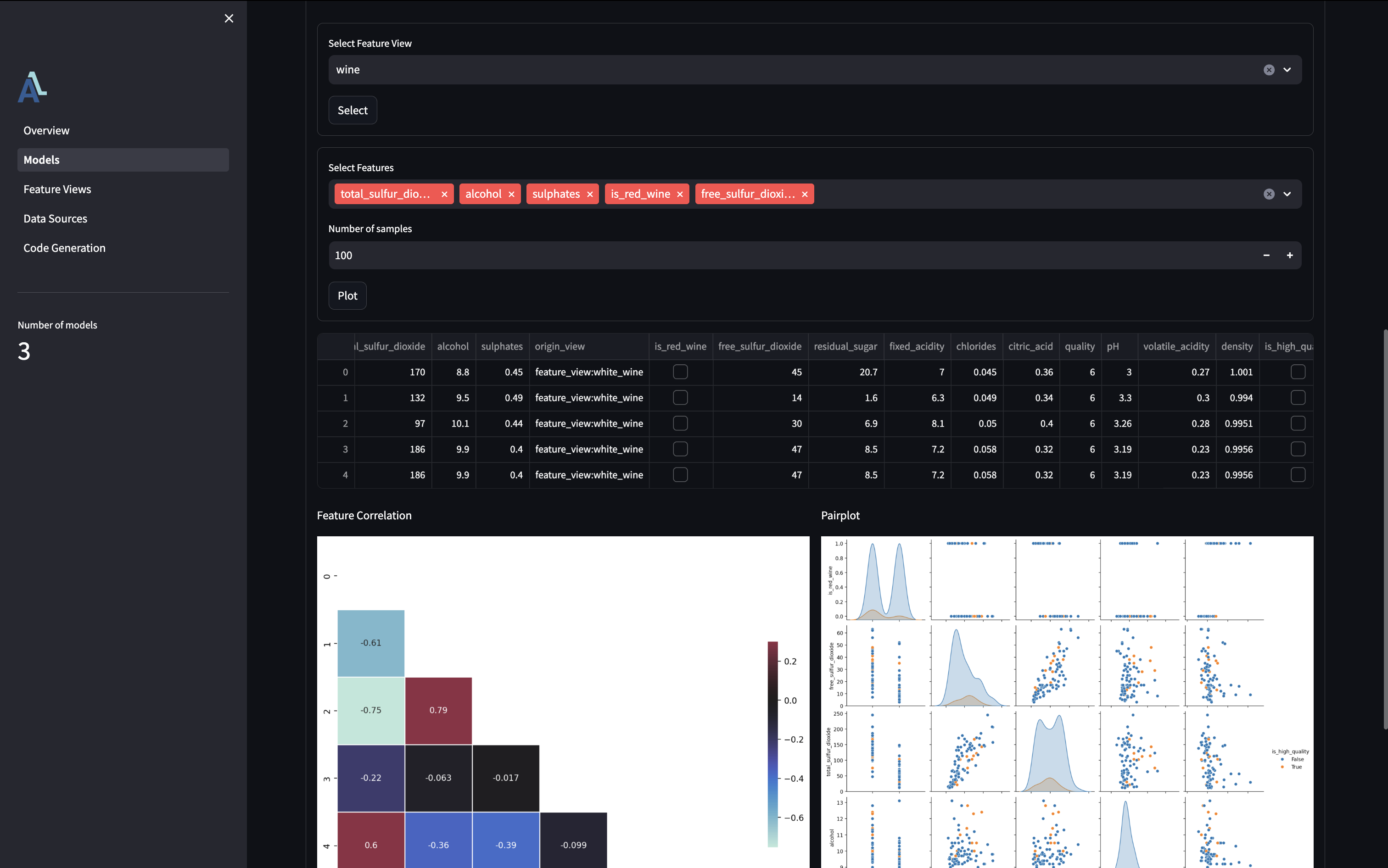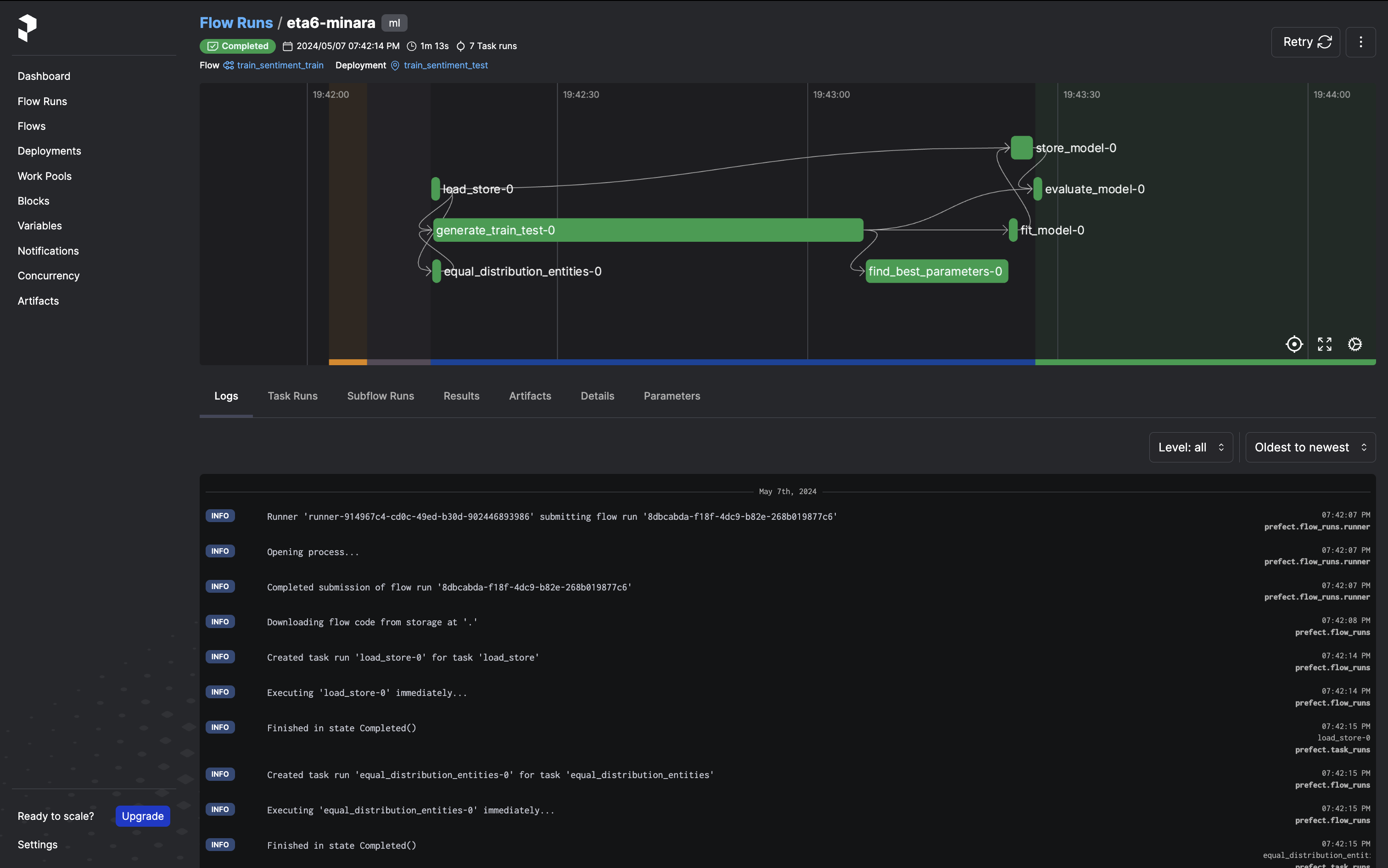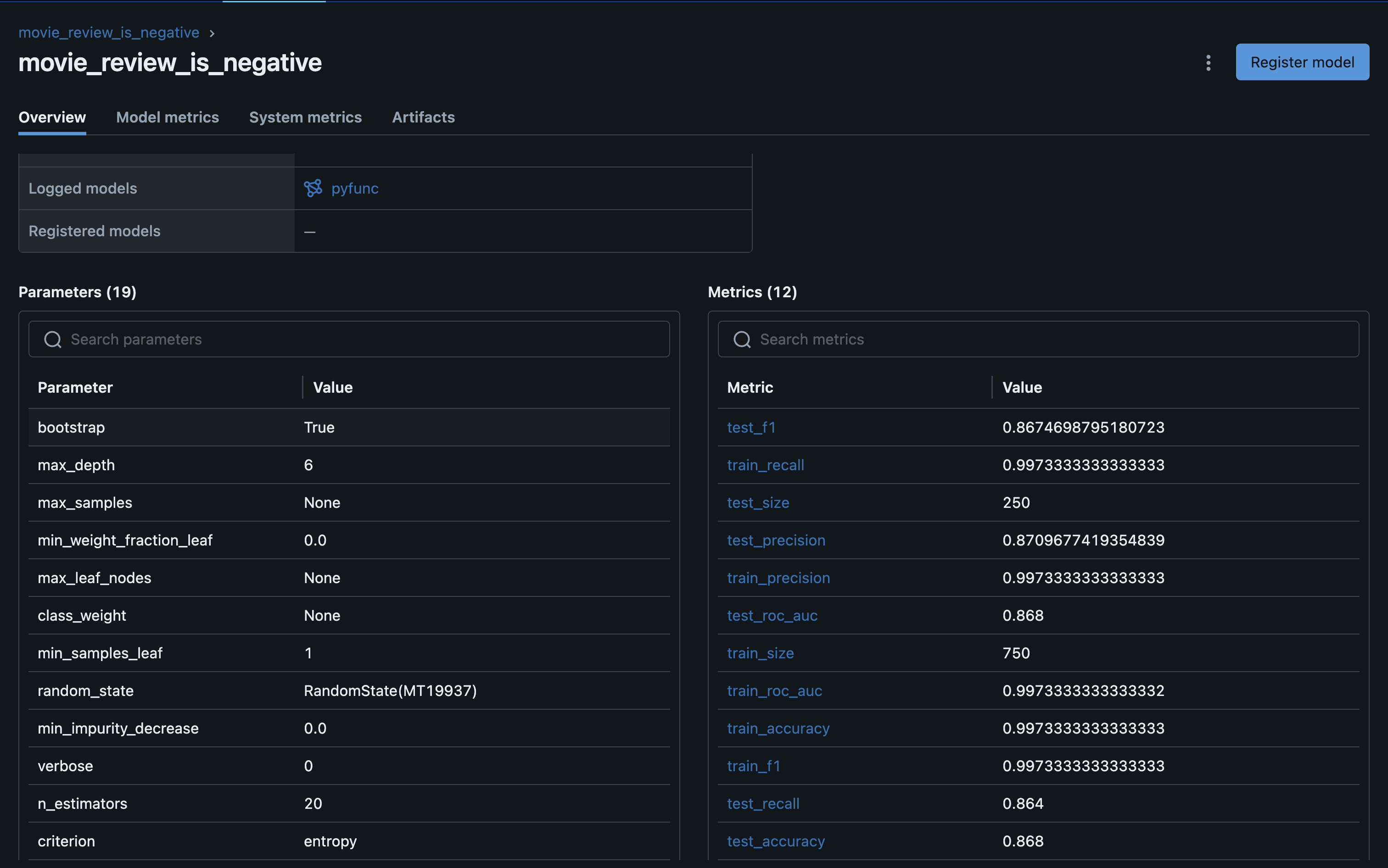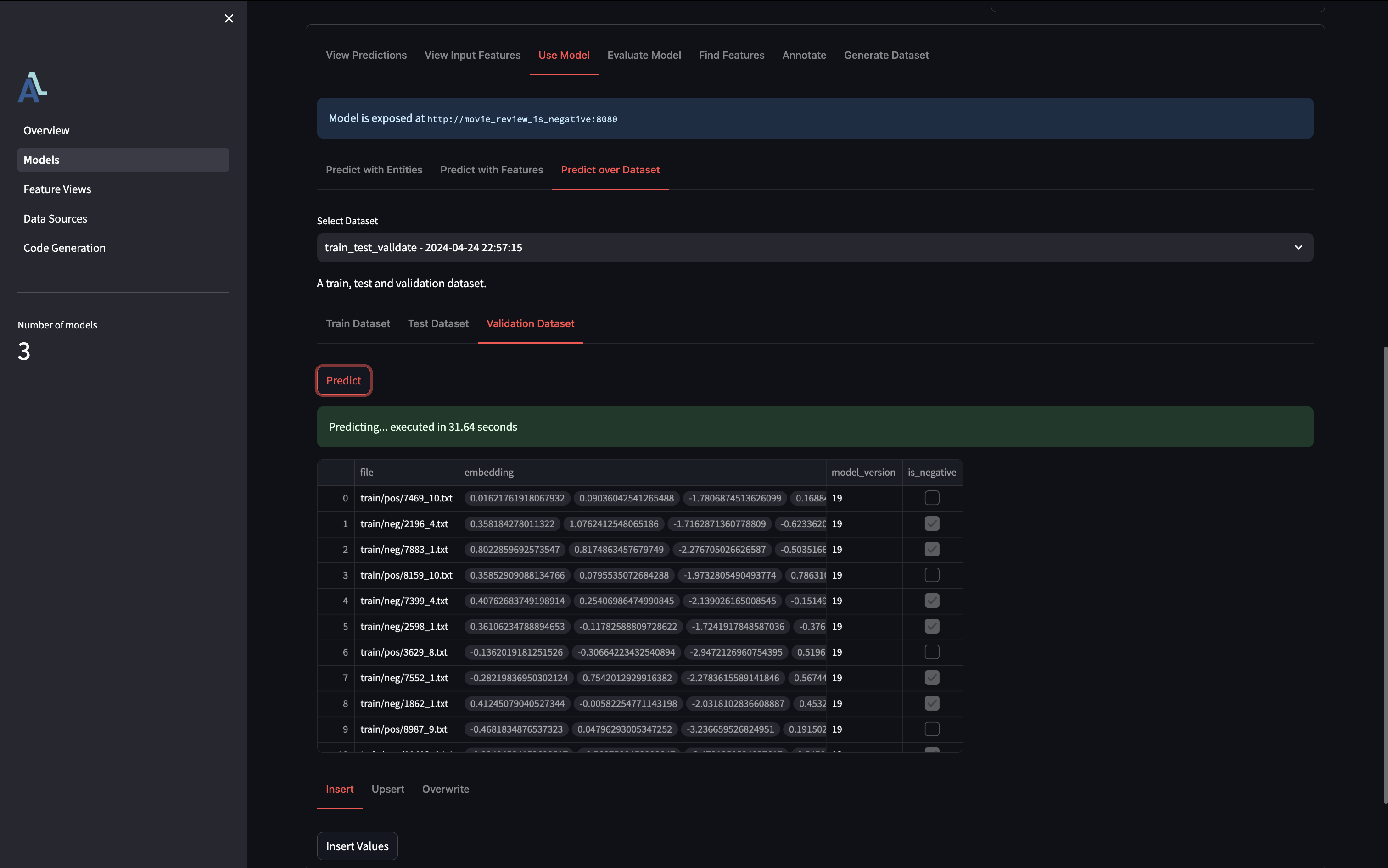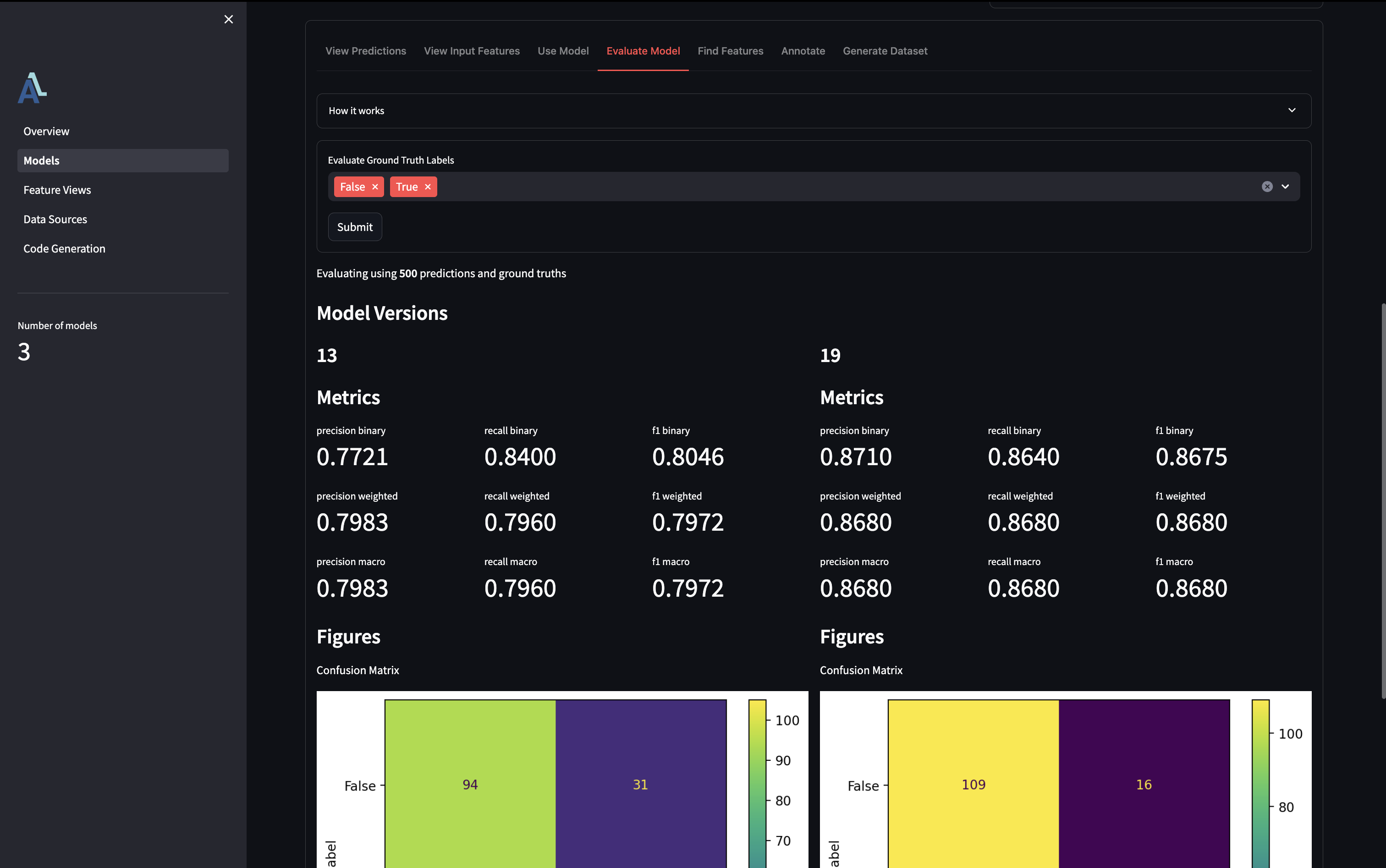This is a kickstarter project for an end-to-end ML.
The goal of this project was to create the project structure that I would love to use my self. Therefore, it is optimized for local development meaning faster iteration speed.
Furthermore, to make projects reliable, reproducable and easy to deploy will everything be developed through Docker, but with hot reloading. Meaning less build time and as a result faster iteration speeds.
- LLM / embedding server using Ollama
- Model experiment tracking using MLFLow
- Model regristry using MLFLow
- Model serving using MLFlow
- Model evaluation in production using Aligned
- Job orchestration using Prefect
- Data catalog using Aligned
- Data management using Aligned
- Data quality management using Aligned
- Data annotation using Aligned
- Complete local development
- Containerized development for easier deployment
- Hot reload updatest to orchestation pipelines
- Hot reload model serving on promotion
- CI with unit and integration test on PRs
- CI warning for potential drift detection
When starting a new AI project, here is the intended development flow.
First we need to start the needed infrastructure to experiment and run our projects.
Run make infra-up this spins up the following:
prefectas the orchetrator that trigger training pipelines. http://127.0.0.1:4201prefect-workerlocal workers that run the pipelines. Reloads on file saves.mlflowas the model registry and the experiment tracker. http://127.0.0.1:7050alignedas the data catalog and data / ml monitoring. http://127.0.0.1:9000
You are now ready to develop a new model.
E.g. if we want to predict if a review is either positive or negative, it could look something like the following:
from aligned import String, Bool, model_contract
@model_contract(
name="movie_review_is_negative",
input_features=[] # Unclear for now
)
class MovieReviewIsNegative:
review_id = String().as_entity()
model_version = String()
predicted_is_negative = Bool()Note
Currently the setup assumes that all ML contracts and views are placed in a file called contract.py. However this can be changed by chainging the src/load_store.py file.
We can use the aligned UI to find which features that could be interesting for our ML use-case.
This assumes that you have told aligned which data to use as the ground truth, which can be done with .as_classification_label().
@feature_view(...)
class MovieReview:
review_id = String().as_entity()
review = String()
is_negative = Bool()
@model_contract(...)
class MovieReviewIsNegative:
review_id = String().as_entity()
predicted_is_negative = (
MovieReview().is_negative
.as_classification_label()
)We can now add the intended features into the contract, but listing them, or the full feature view in the input_feature attribute. And it is also possible to have differnet versions of input, incase the input changes over time.
wine_features = Wine()
@model_contract(
name="wine_is_high_quality",
input_features=[
wine_features.is_red_wine,
wine_features.alcohol,
...
]
)
class WineIsHighQuality:
...Create your own pipeline logic, or maybe reuse the generic classification pipeline, classifier_from_train_test_set which is located at src/pipelines/train.py.
Remember to add the pipeline to src/pipelines/available.py to make it visible in the Prefect UI.
Train the model by using the Prefect UI.
View training runs and manage which models should be deployed, through MLFlow.
Figure out what the url of the model is and serve the ML model.
View the wine-model in docker-compose.yaml for an example.
To use the model, update our model_contract once more with where the model is exposed, and where we want to store the predictions.
Make sure you have started the models with make models-up.
This will reload the models when you promote a new model.
Then we can predict over different datasets, or manually inputted data.
from aligned import FileSource, ...
from aligned.exposed_model.mlflow import mlflow_server
@model_contract(
name="movie_review_is_negative",
input_features=[...],
exposed_at=mlflow_server(
host="http://my-docker-service-name:8080",
# Used to figure out which model version produced the prediction
model_name="movie_review_is_negative",
model_alias="champion"
),
output_source=FileSource.csv_at("online_preds/movie_review_is_negative.csv"),
dataset_store=FileSource.json_at("datasets/movie_review_is_negative.json")
)
class MoviewReviewIsNegative:
review_id = String().as_entity()
model_version = String().as_model_version()
predicted_is_negative = (
MovieReview().is_negative
.as_classification_label()
)Lastly, we can start evaluating online predictions whenever we recive new ground truth values.
This can also be done through the aligned UI in the evaluation tab.
Here can different models also be compared against each other if you have added the as_model_version() in the model contract.
@model_contract(...)
class MoviewReviewIsNegative:
review_id = String().as_entity()
model_version = String().as_model_version()
...This projects contain a simple Makefile to simplify the development.
Spins up the differnet trained MLFlow models.
- Spins up the
wine_modelif trained and annotated aschampion- can be done throughmake train - Spins up the
movie_review_is_negativeif trained and annotated aschampion- can be done throughmake train
Spins up the Ollama server and pulls an embedding model down. If you run on MacOS, it is recommended to run the ollama server ouside of docker, as that enables the GPU.
Runs all tests in the tests dir, both unit tests, and integration tests if you have them.
Rebuilds all images if needed.
Removes all unused docker images.
